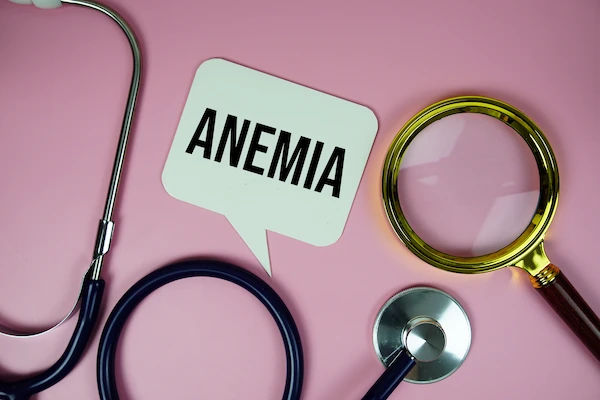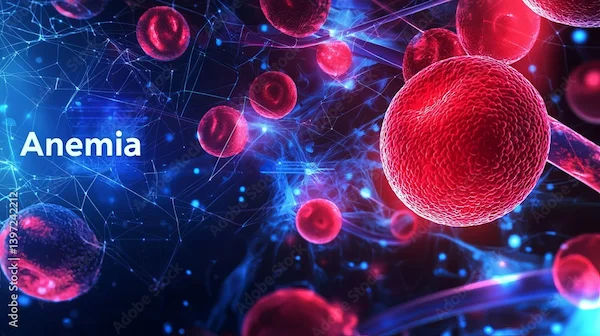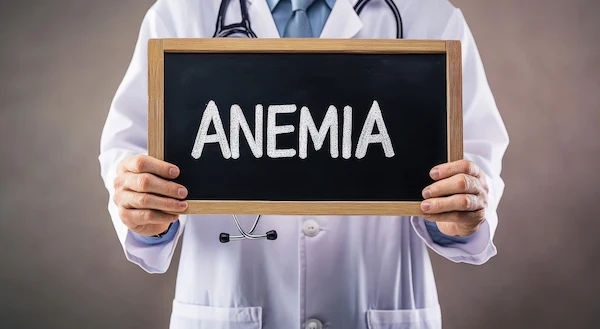Blood Volume in the Human Body
Discover how much blood is in the human body, factors that influence blood volume, and its importance for overall health. Learn how blood volume is regulated and measured in medical settings.

Written by Dr. M L Ezhilarasan
Reviewed by Dr. Dhankecha Mayank Dineshbhai MBBS
Last updated on 13th Aug, 2025
.webp?tr=q-80,f-webp,w-350,dpr-2,c-at_max 700w)
Blood is the lifeline of our body, carrying oxygen, nutrients, and essential substances to every cell while removing waste products. The amount of blood in our body, known as blood volume, plays a crucial role in maintaining overall health. In this article, we’ll explore what blood volume means, why it matters, and how you can keep it balanced for better well-being.
What is Blood Volume?
Blood volume refers to the total amount of blood circulating in your body. An average adult has about 5 to 6 liters (10.5 to 12.7 pints) of blood, but this can vary based on factors like age, weight, gender, and overall health.
Consult a Top Hematologist
Why is Blood Volume Important?
Blood volume plays a major role because it,
Delivers Oxygen & Nutrients – Blood transports oxygen from the lungs and nutrients from food to all organs.
- Removes Waste – It carries away carbon dioxide and other waste products for elimination.
- Regulates Body Temperature – Blood helps maintain a stable body temperature.
- Supports Immunity – White blood cells in the blood fight infections.
- Maintains Blood Pressure – Proper blood volume ensures stable circulation and blood pressure.
What Happens When Blood Volume is Too Low or Too High?
When blood volume fluctuates the below symptoms occur,
Low Blood Volume (Hypovolemia)
When blood volume drops below normal, it can lead to:
Symptoms:
- Fatigue or dizziness
- Rapid heartbeat
- Pale skin
- Cold hands and feet
- Low blood pressure
- Fainting
Common Causes:
- Dehydration (not drinking enough water)
- Blood loss (due to injury, surgery, or heavy periods)
- Severe burns or diarrhea
- Certain medications (like diuretics)
How to Manage It?
- Stay Hydrated – Drink enough water daily (at least 8-10 glasses).
- Eat Iron-Rich Foods – Helps in blood production (leafy greens, beans, red meat).
- Treat Underlying Causes – If due to blood loss, consult a doctor.
High Blood Volume (Hypervolemia)
Excess blood volume can strain the heart and circulatory system.
Symptoms:
- Swelling in legs, hands, or face (edema)
- Shortness of breath
- High blood pressure
- Rapid weight gain
Common Causes:
- Kidney or heart disease
- Excessive salt intake
- Hormonal imbalances
How to Manage It?
- Reduce Salt Intake – Avoid processed foods and excess salt.
- Monitor Fluid Intake – Follow doctor’s advice if you have heart/kidney issues.
- Exercise Regularly – Helps in circulation and fluid balance.
How Can You Maintain Healthy Blood Volume?
Below are a few ways to maintain healthy blood volume,
1. Stay Hydrated – Drink enough water daily (unless advised otherwise by a doctor).
2. Eat a Balanced Diet – Include iron-rich foods (spinach, lentils, eggs) and vitamin C (oranges, bell peppers) to help absorb iron.
3. Exercise Regularly – Improves circulation and blood flow.
4. Avoid Excessive Alcohol & Caffeine – These can dehydrate the body.
5. Monitor Health Conditions – If you have heart, kidney, or blood disorders, follow medical advice.
When Should You See a Doctor?
If you experience:
- Persistent dizziness or fatigue
- Unexplained swelling
- Rapid weight changes
- Severe dehydration symptoms
Consult a healthcare professional for proper diagnosis and treatment.
Need a Check-Up?
If you’re concerned about your blood volume or related symptoms, you can book a consultation or blood test through Apollo 24|7 for expert guidance.
Final Thoughts
Maintaining the right blood volume is essential for good health. By staying hydrated, eating well, and monitoring any unusual symptoms, you can support your body’s circulation and overall well-being. If in doubt, always seek medical advice to stay on the safe side.
Consult a Top Hematologist
Consult a Top Hematologist

Dr. Purvi Kadakia Kutty
Paediatric Haematologist
10 Years • MD Paediatrics FNB Pediatric Haem. & Onco.
Mumbai
Apollo Hospitals CBD Belapur, Mumbai

Dr. Prabu P
Haematologist
29 Years • MBBS, MD(Gen.Med.)(JIPMER) , MRCP, Dip RCPath, FRCPath, CCT(U.K), Haemato - Oncology.
Chennai
Apollo Hospitals Greams Road, Chennai
(475+ Patients)

Dr. Ramalinga Reddy
General Physician
5 Years • MBBS MD General medicine
Bengaluru
PRESTIGE SHANTHINIKETAN - SOCIETY CLINIC, Bengaluru
Dr Sumanth R
General Physician
2 Years • MBBS
Bengaluru
PRESTIGE SHANTHINIKETAN - SOCIETY CLINIC, Bengaluru

Dr. Thorana Prakash M
General Physician
2 Years • MBBS
Bengaluru
PRESTIGE SHANTHINIKETAN - SOCIETY CLINIC, Bengaluru
Consult a Top Hematologist

Dr. Purvi Kadakia Kutty
Paediatric Haematologist
10 Years • MD Paediatrics FNB Pediatric Haem. & Onco.
Mumbai
Apollo Hospitals CBD Belapur, Mumbai

Dr. Prabu P
Haematologist
29 Years • MBBS, MD(Gen.Med.)(JIPMER) , MRCP, Dip RCPath, FRCPath, CCT(U.K), Haemato - Oncology.
Chennai
Apollo Hospitals Greams Road, Chennai
(475+ Patients)

Dr. Ramalinga Reddy
General Physician
5 Years • MBBS MD General medicine
Bengaluru
PRESTIGE SHANTHINIKETAN - SOCIETY CLINIC, Bengaluru
Dr Sumanth R
General Physician
2 Years • MBBS
Bengaluru
PRESTIGE SHANTHINIKETAN - SOCIETY CLINIC, Bengaluru

Dr. Thorana Prakash M
General Physician
2 Years • MBBS
Bengaluru
PRESTIGE SHANTHINIKETAN - SOCIETY CLINIC, Bengaluru

.webp)


